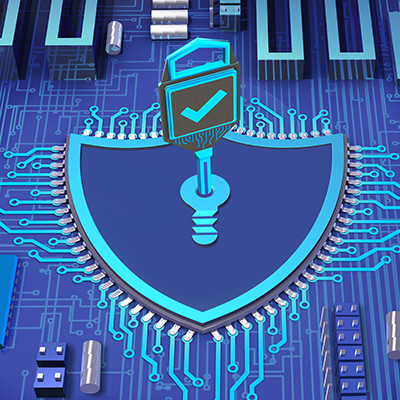- Register
- Login
Texas Professional IT Services LLC Blog
Use this Cyberthreat Checklist to Adjust Your Security Infrastructure
Cyberattacks are horrifically dangerous to any business, especially for small ones that might not have the resources to protect themselves with top-dollar solutions or preventative solutions to bounce back afterward. Today, we want to explore what really causes cyberattacks and how even slight changes to behaviors and situations can be indicative of danger.
Some of the Biggest Data-Breach-Causing Problems
Malware Can Help Criminals Access and Steal Information from Your Network
This is the biggest culprit that springs to people’s minds when they think about cyberattacks, and the types of malware involved can vary wildly. Spyware, for example, can steal data from data storage and use it for nefarious purposes. A data breach doesn’t always mean that data is stolen, but it does mean that it is accessed, which is certainly not a good thing either. There are other threats that can do much worse, too.
Your Employees Can Sabotage Your Efforts Unintentionally…
Phishing is the most common method of spreading threats, and that’s because it’s remarkably easy to trick people into giving up access to data. It’s low-hanging fruit, and when phishing attacks are successful, they save hackers countless hours of research and effort trying to fool someone into handing over data or credentials.
… And Intentionally
Unfortunately, insider threats are also a real threat, and it’s not unheard of for a disgruntled team member to hand over data just for the sake of ruining your organization. You might not want to consider this threat, but it’s one that must be taken to heart.
Employees Might Have Their Reasons for Unauthorized Access of Data
Your employees might just be causing trouble for the sake of doing it, or to make a statement. They might not be doing it to cause trouble for you in particular, but it’s more or less just a part of their own personal agenda. Granted, this is not okay either, since a breach is still a breach.
Password Problems Are the Root of Many Breaches
Passwords are important, in case all of the other relentless harping of others in the technology industry hasn’t made you aware of it. Poor password practices is one major way that data breaches occur, as more advanced tools used by hackers can crack simple passwords in a matter of minutes, or even seconds.
Lost Devices Lead to Breaches
If a device is misplaced or stolen, that device could become a key to accessing information on your business’ network. This is for two reasons: the device might innately have access, and the device could be a part of your two-factor authentication infrastructure, allowing hackers to use credentials they have stolen against you.
Hard Copies Are Just as Vulnerable
There is also danger to your hard copies of data, i.e., physical documents that could easily be left strewn about people’s desks or elsewhere in the workplace. It’s easy to forget about these documents when there is such an emphasis on digital security, but they are just as much at risk.
We Can Help Protect Your Business
If you want to minimize the time you spend thinking about security, Texas Professional IT Services LLC can guide your business along the right path. To learn more, call us today at (832) 514-6260.
About the author
Texas Professional IT Services LLC has been serving the Baytown area since 1995, providing IT Support such as technical helpdesk support, computer support, and consulting to small and medium-sized businesses.





Comments